Beijing -
As thousands of travellers arrive in Beijing ahead of the Opening Ceremony on Friday, athletes, media and other foreign officials are getting a sense of the restrictions and COVID-19 protocols.
Olympic officials had made it clear prior to the ramp-up to the Games, anyone accredited would have to follow strict guidelines while making sure every document was correctly filled out well before landing in China. They weren't kidding.
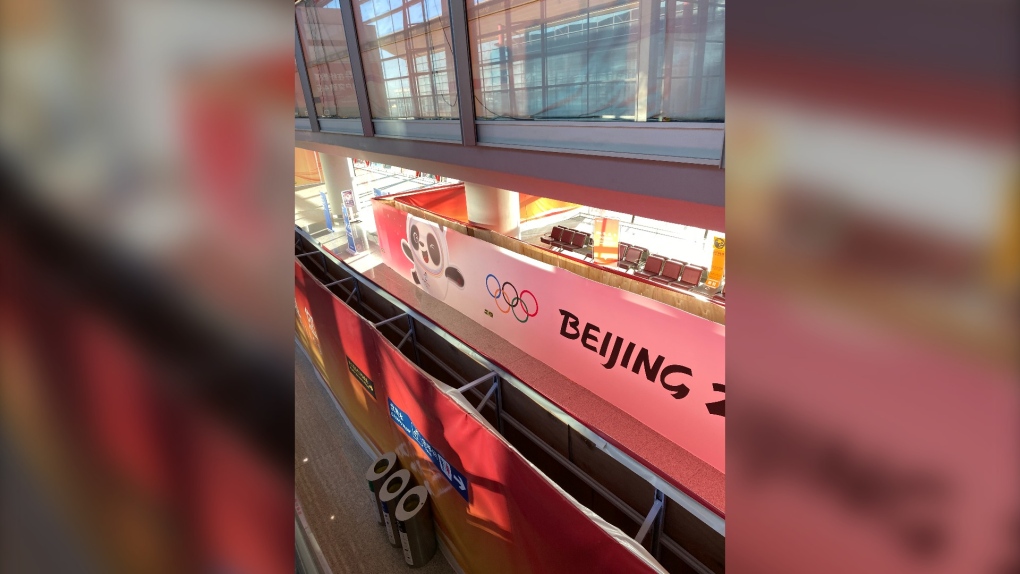 Beijing Airport. (Mark Khouzam/CTV News)
Beijing Airport. (Mark Khouzam/CTV News)
Only a limited number of flights were scheduled to land in Beijing, carrying those who are participating in or covering the Games.
Before even setting foot into the country, proof of two negative PCR tests was mandatory as well as proof of vaccination.
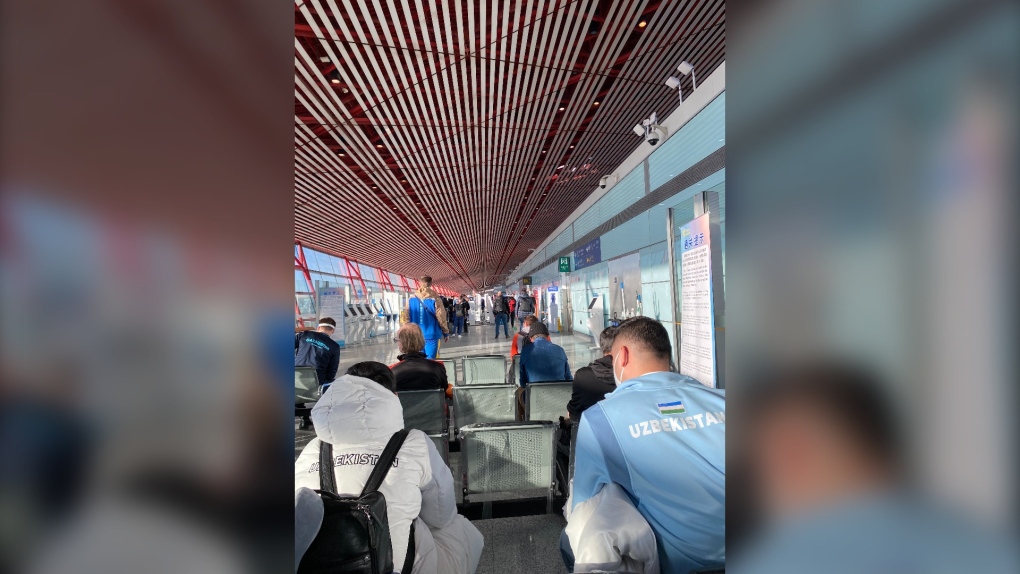 Beijing Airport. (Mark Khouzam / CTV News)
Beijing Airport. (Mark Khouzam / CTV News)
Travellers had to upload what's called a "Green QR Health Declaration" to the official Beijing My2022 app, which stores all travel-related documents, ahead of approval to enter the country.
Then there's the "customs health declaration," which had to be filled out within 24 hours of landing. The declaration is very similar to a regular customs document. Travellers were required to declare whether they had tested positive for COVID-19 before in the past, provide address of hotel and whether they are staying inside the what's known as the "Closed loop," the area for athletes, Olympics rights holders and media-types.
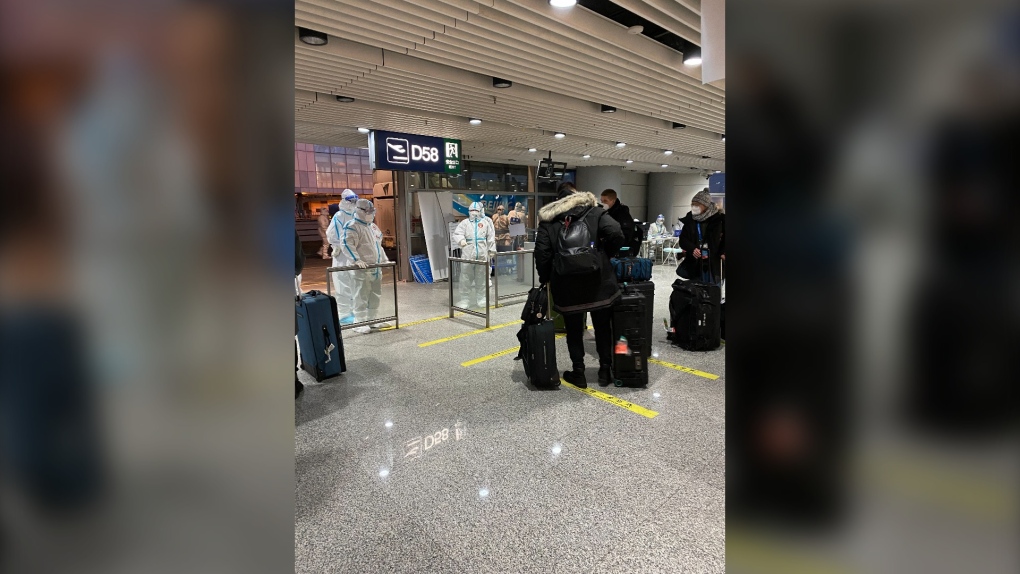 Beijing Airport. (Mark Khouzam / CTV News)
Beijing Airport. (Mark Khouzam / CTV News)
The area is essentially a closed system to the public. Only those who have been accredited for the Games are allowed to travel within the closed loop. Transport within the loop is strictly to and from competition venues and approved accommodation sites.
It appears health concerns is top of mind for staff inside the Beijing Airport. Even before landing, flight crews took the temperatures of passengers on board the flight. Once on the ground in Beijing, staff guided travellers through Beijing Airport via different hallways and escalators to a waiting area all while full, white hazmat suits.
After filling out the passport information, a PCR test within the airport is required. After the test, it's through customs and onto a bus.
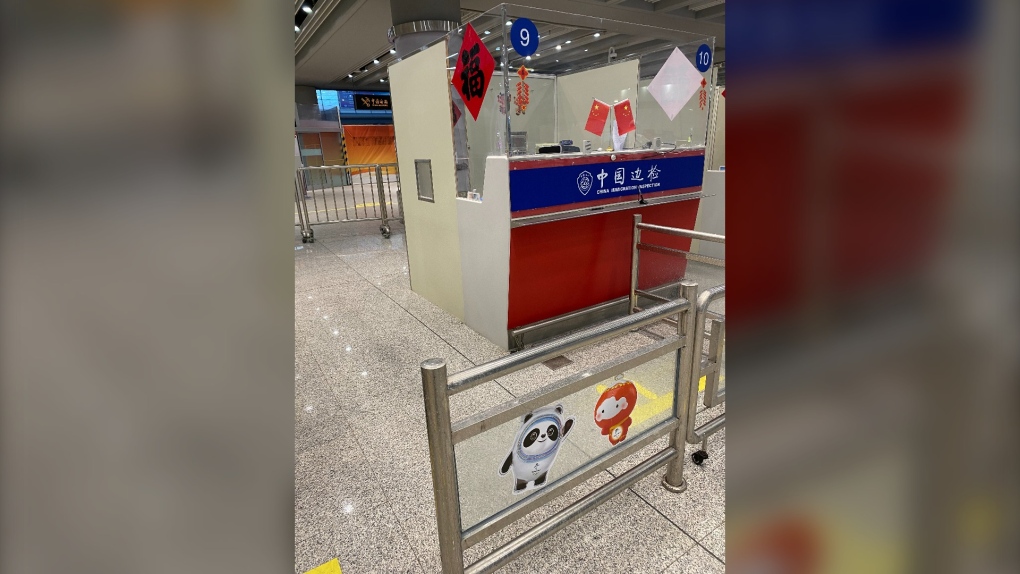 Beijing Airport. (Mark Khouzam / CTV News)
Beijing Airport. (Mark Khouzam / CTV News)
The process seemed straightforward. Clearly, China is making a considerable effort to keep a tight bubble, making sure members of the Games and the public don't mix at any point.
Local police have been stationed outside hotels and accommodation sites, and fences have been erected around the hotels in an effort to keep the public from entering or having those from the Games leaving the closed loop and into the public.
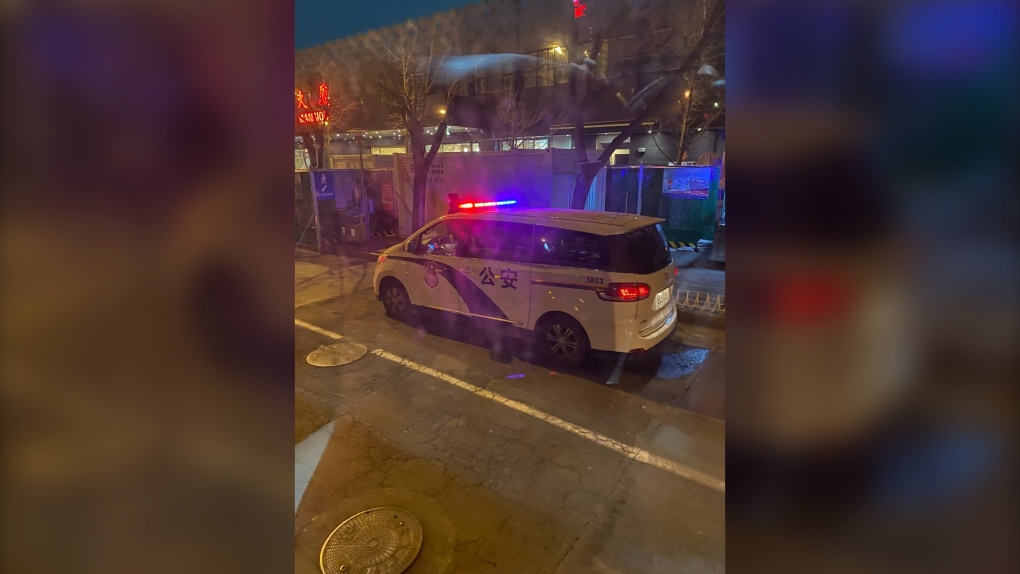 Beijing Airport. (Mark Khouzam / CTV News)
Beijing Airport. (Mark Khouzam / CTV News)
Inside a Beijing 2022 approved hotel, the effort to keep contact between staff and visitors is also a priority. A "handover table" has been stationed outside each room to allow staff to leave food and other items for visitors.
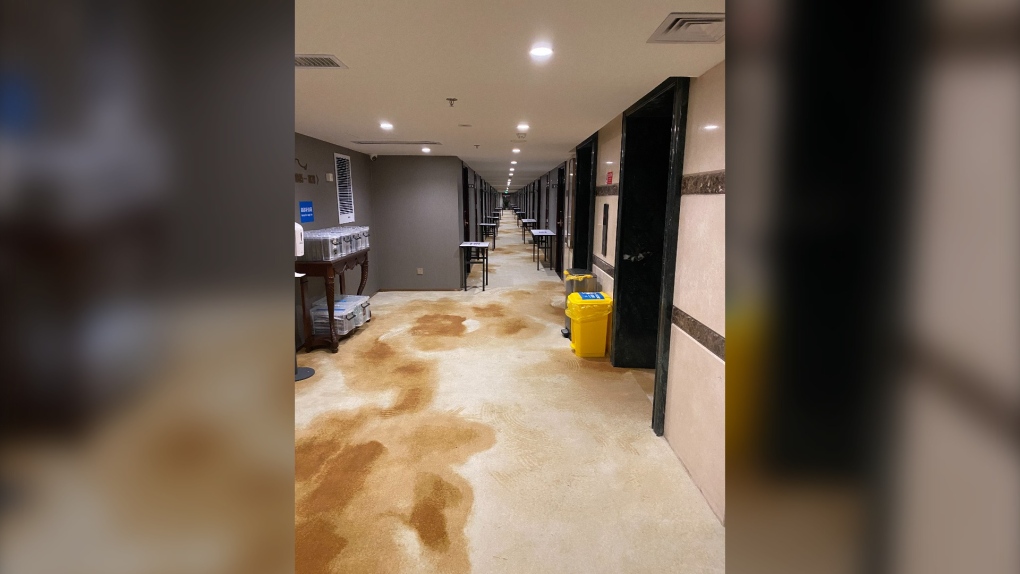 Beijing Olympics hotel. (Mark Khouzam / CTV News)
Beijing Olympics hotel. (Mark Khouzam / CTV News)
An amenities station is also available on each floor to help cut down on staff interaction.
The Beijing Games are like no other for journalists on the ground. In the past, media has been able to tour the host city to see what life is like beyond the competition itself.
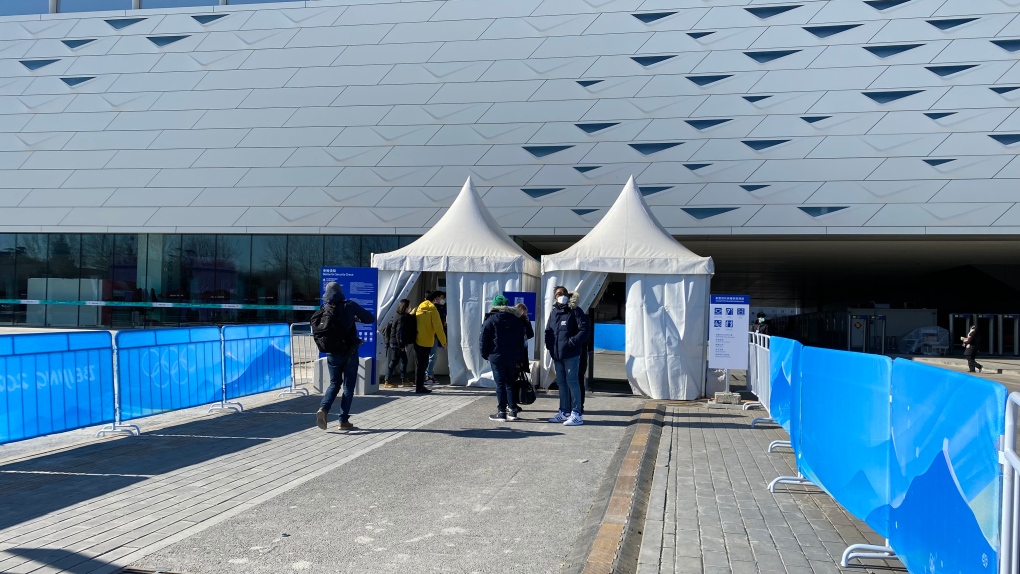 Main Press Centre at Beijing Olympics. (Mark Khouzam/CTV News)
Main Press Centre at Beijing Olympics. (Mark Khouzam/CTV News)
But, because of the closed loop system to help curb the spread of COVID-19, seeing what life is like beyond the Olympic fences will have to wait for another time. Journalists are shuttled by bus from the Olympics venue to their hotel and back again.
As for where many journalists will be spending much of the time? Welcome to the Main Press Centre (MPC).
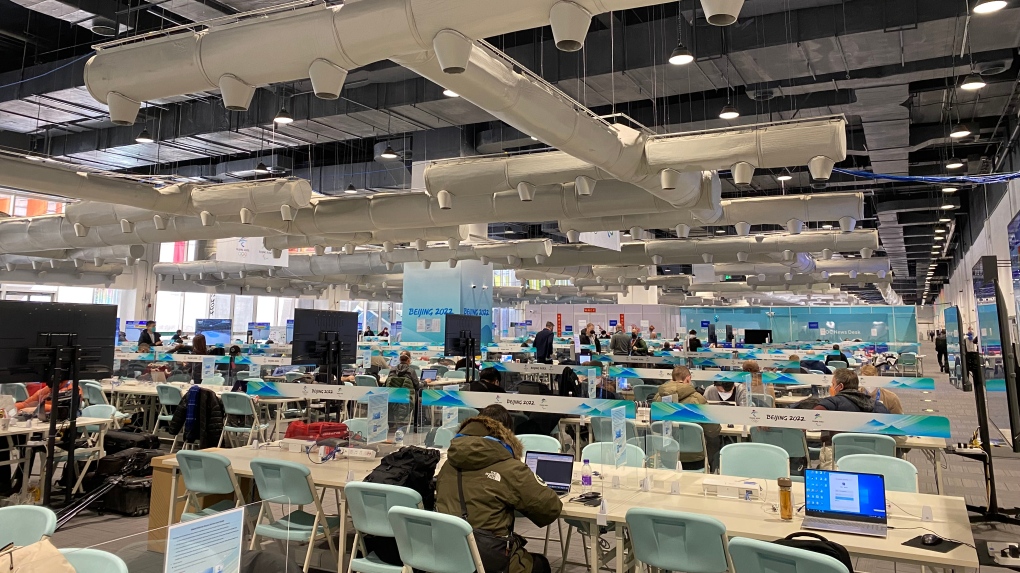 Main Press Centre at Beijing Olympics. (Mark Khouzam/CTV News)
Main Press Centre at Beijing Olympics. (Mark Khouzam/CTV News)
The MPC is where hundreds of media members from across the world gather to file stories, regroup with colleagues and perhaps, catch some shuteye.
For the next three weeks, the building, known officially as the National Convention Centre, will become home for journalists from around the world.
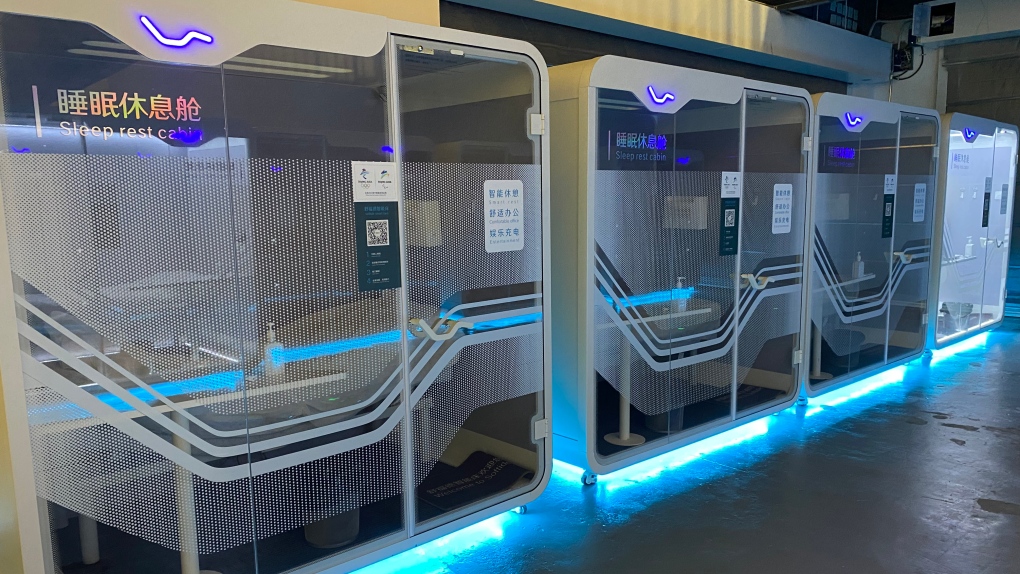 Sleep stations in Main Press Centre at Beijing Olympics. (Mark Khouzam/CTV News)
Sleep stations in Main Press Centre at Beijing Olympics. (Mark Khouzam/CTV News)
Sleep stations were installed in the MPC to allow members of the media to get some downtime and relax in a private space without having to shuttle back to a hotel.
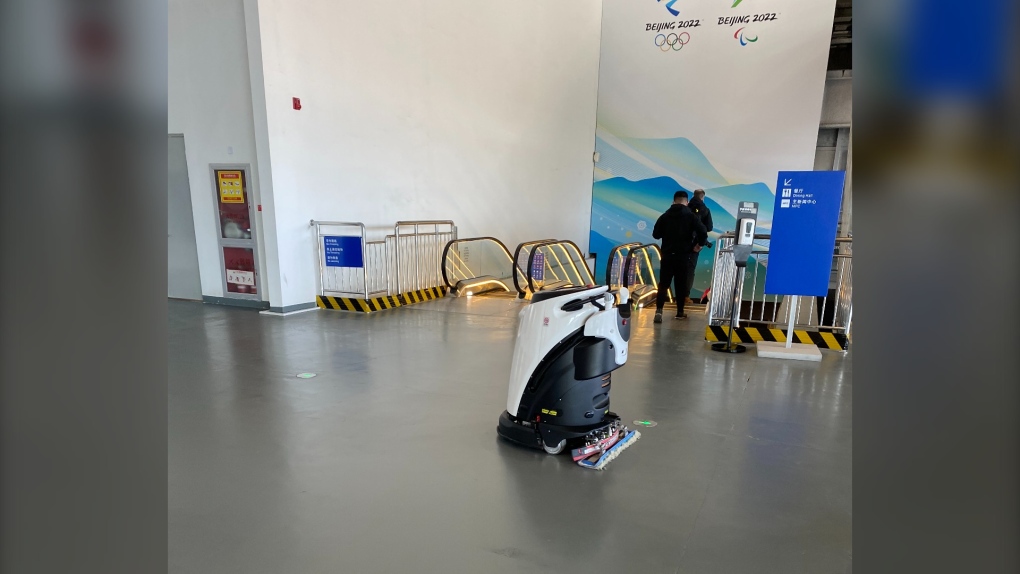 A robot cleans the floor of the Main Press Centre at Beijing Olympics. (Mark Khouzam/CTV News)
A robot cleans the floor of the Main Press Centre at Beijing Olympics. (Mark Khouzam/CTV News)
And to help keep the MPC clean, robots have been tasked with taking care of the floors as journalists come and go.
















































